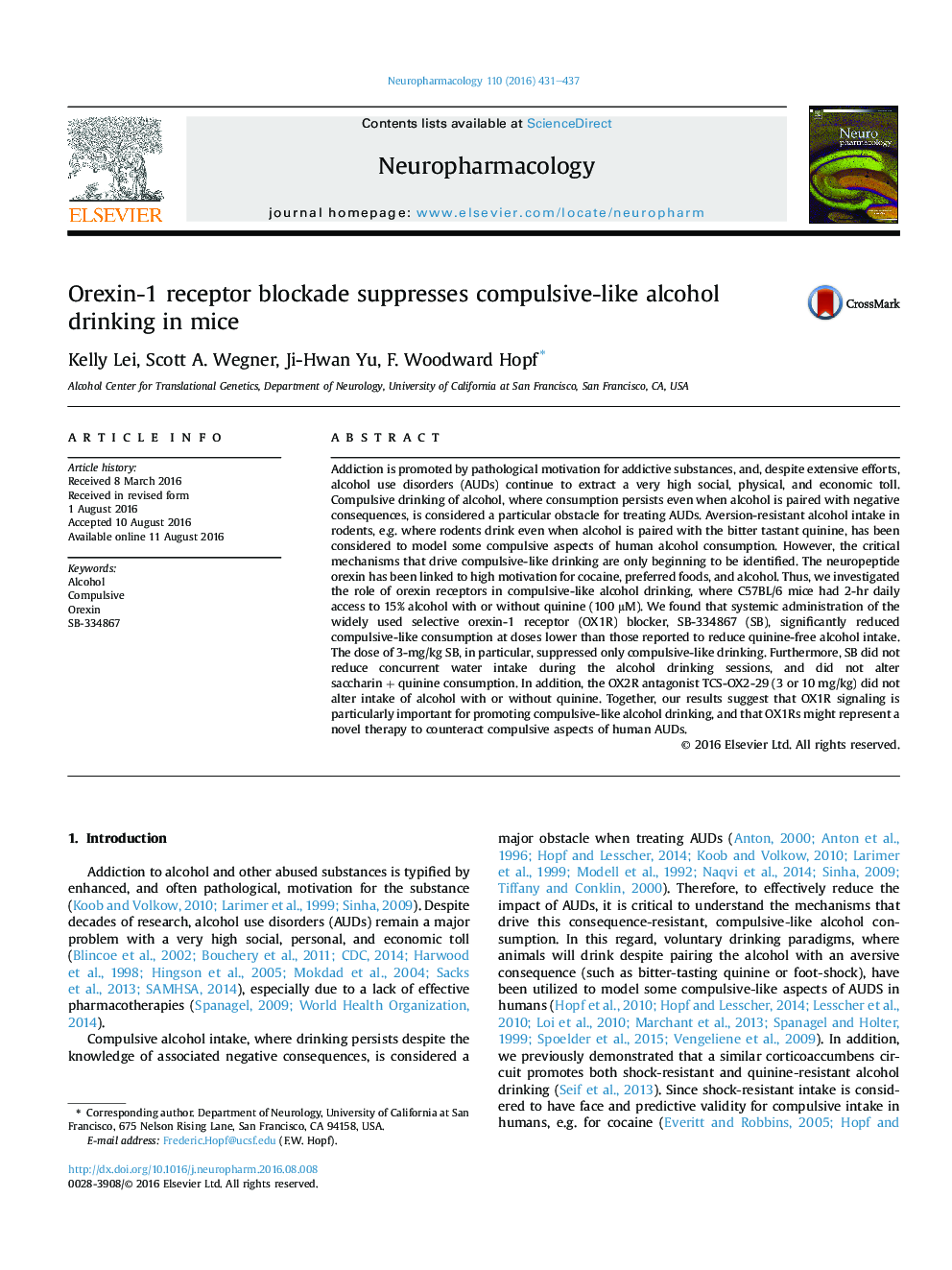| کد مقاله | کد نشریه | سال انتشار | مقاله انگلیسی | نسخه تمام متن |
|---|---|---|---|---|
| 5549242 | 1402859 | 2016 | 7 صفحه PDF | دانلود رایگان |

- Compulsive drives for alcohol represent a major global social and economic problem and also a major obstacle to treatment.
- Orexin-1 receptors are implicated in responding for highly motivating substances.
- Compulsive-like alcohol intake is inhibited by lower concentrations of Orexin-1 receptor blockers, relative to binge intake.
- Compulsive-like alcohol consumption is not inhibited by Orexin-2 receptor antagonists.
- Orexin-1 receptor blockers may represent a novel therapeutic intervention for compulsive aspects of alcohol addiction.
Addiction is promoted by pathological motivation for addictive substances, and, despite extensive efforts, alcohol use disorders (AUDs) continue to extract a very high social, physical, and economic toll. Compulsive drinking of alcohol, where consumption persists even when alcohol is paired with negative consequences, is considered a particular obstacle for treating AUDs. Aversion-resistant alcohol intake in rodents, e.g. where rodents drink even when alcohol is paired with the bitter tastant quinine, has been considered to model some compulsive aspects of human alcohol consumption. However, the critical mechanisms that drive compulsive-like drinking are only beginning to be identified. The neuropeptide orexin has been linked to high motivation for cocaine, preferred foods, and alcohol. Thus, we investigated the role of orexin receptors in compulsive-like alcohol drinking, where C57BL/6 mice had 2-hr daily access to 15% alcohol with or without quinine (100 μM). We found that systemic administration of the widely used selective orexin-1 receptor (OX1R) blocker, SB-334867 (SB), significantly reduced compulsive-like consumption at doses lower than those reported to reduce quinine-free alcohol intake. The dose of 3-mg/kg SB, in particular, suppressed only compulsive-like drinking. Furthermore, SB did not reduce concurrent water intake during the alcohol drinking sessions, and did not alter saccharin + quinine consumption. In addition, the OX2R antagonist TCS-OX2-29 (3 or 10 mg/kg) did not alter intake of alcohol with or without quinine. Together, our results suggest that OX1R signaling is particularly important for promoting compulsive-like alcohol drinking, and that OX1Rs might represent a novel therapy to counteract compulsive aspects of human AUDs.
Journal: Neuropharmacology - Volume 110, Part A, November 2016, Pages 431-437